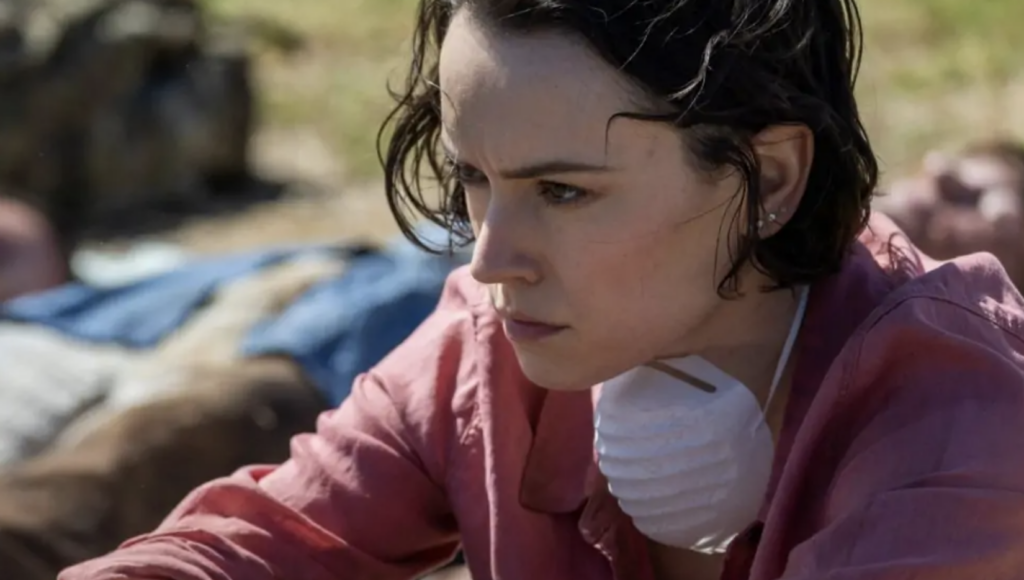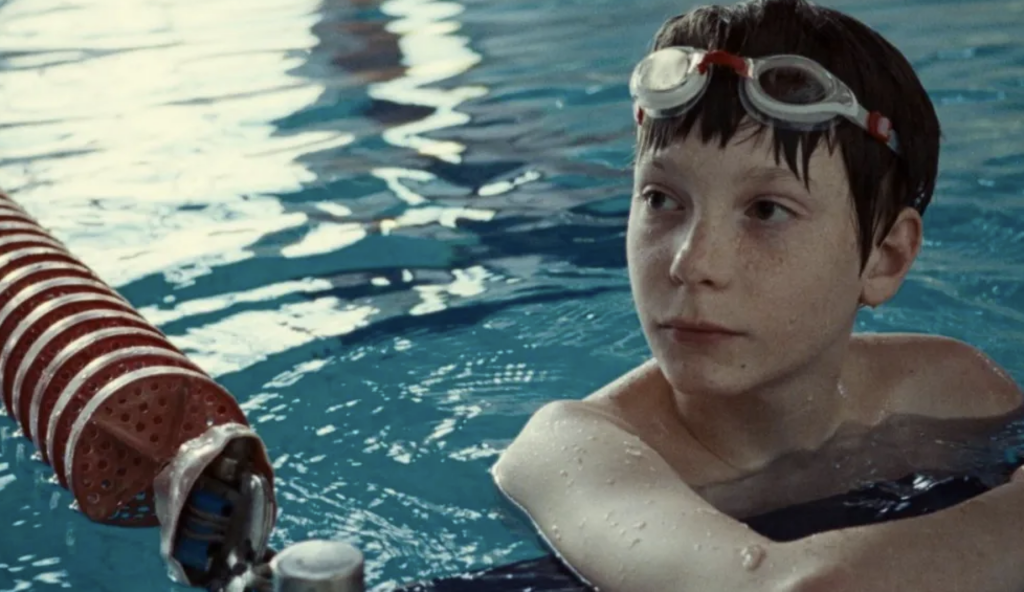Jason Reitman’s Saturday Night is a self-mythologizing tome that insists upon itself. It’s still the best possible version of an unavoidable film.
Dedicating an entire movie to the concept of sketch comedy’s longest-running institution, Saturday Night Live, requires coming to some kind of grasp on the degree to which SNL actually exists as an institution—and who is responsible for its cultural placement.
Jason Reitman’s new film Saturday Night attempts to tell the story of a historic television show and revolutionary, transgressive network experiment run amok, without sharing a stance on the relevance of this weekly gag program beyond acknowledging its existence and admitting it had a chaotic origin. Is it enough to say that creativity has a place in the higher echelons of history simply by reiterating that it exists? No, but it’s safe. And ultimately, it’s the reason that Reitman’s movie is limited to existing as a good flick instead of a capital-“i” Important one.
Saturday Night takes 50 years of cultural relevance and distills it down to its Big Bang moment, 90 minutes before the first show aired in 1975. The weight of putting this show together falls on a young Lorne Michaels (Gabriel LaBelle of The Fabelmans) a producer with a dream of creating a variety show by and for a younger generation. Each ticking minute sees Michaels racing between floors at 30 Rockefeller Plaza, reassuring execs Dick Ebersol (Cooper Hoffman) and Dave Tebet (Willem Dafoe) while putting out fires on everything from a disappearing light crew, gun props, costume changes, and the delivery of a llama outside of the delivery dock’s standard work hours.
John Belushi (Matt Wood) won’t sign his contract, and Chevy Chase (Cory Michael Smith) is antagonizing Milton Berle (JK Simmons). while head writer Michael O’Donoghue (Tommy Dewey) and host George Carlin (Matthew Rhys) are immovably obstinate. Jim Henson and Andy Kaufman (both played by Succession’s Nicholas Braun) remain the hesitantly brilliant outsiders. Gilda Radner (Ella Hunt), Jane Curtin (Kim Matula) and Laraine Newman (Emily Fairn), along with writer Rosie Shuster (Rachel Sennott) aren’t given nearly enough to work with, each really commanding one small narrative outlier, but that kind of sidelining of the women involved in SNL feels on brand.
It turns out throwing a generation of talented comedic actors into a 90 minute real-time farce and asking them to impersonate some of the funniest people of a generation is really hard to fuck up. Saturday Night is at its best when artists acting like lunatics are at each other’s throats. It doesn’t crash and burn when it is trying to accomplish its other goal, but it does hold back a film where all the other pieces were in the right places to be a stone-cold classic.
The truth about this entire endeavor is it was unavoidable for an SNL movie to not exist. Someone needed to make it for the same reason that SNL won’t leave the air anytime soon: its greatest strength is self-mythologizing. A plot point throughout Saturday Night is that folks keep insisting that Lorne Michaels explain what SNL is, and he cannot. He doesn’t know what he’s making, but he knows it is “important.”
This is made manifest perfectly in the first five minutes of the flick, when Michaels avoids answering this question by pulling an NBC staff member aside, ranting about how the NBC Pages need to be retrained in how they explain his show during their tours. It’s revolutionary, experimental, and important. From before the show had even aired, Michaels knew how he wanted everyone to talk about his life’s work—he had a brand that he could insist upon, and in place of anyone having a better explanation, they’d turn to this descriptor.
For a film that was inevitable, unavoidable, this Reitman joint is the best possible version. It’s heartfelt, it’s brisk, and whenever another film would’ve lagged, Sorkin-esque monologues override. If you’re one of the few, like me, who had a soft spot for Studio 60 on the Sunset Strip, you’ll adore this. If you’re hoping for an honest portrayal of the origins of SNL, there are plenty of books to help you. Reitman’s version is, more or less, “spiritually true,” and that does a lot of great work.
It’s a wild thing to watch Saturday Night and drive home to watch the 50th season of Saturday Night Live kick-off. Opening the show proper with a game show sketch featuring the Hawk Tuah girl and a meme’d participant in the Paris Olympics—making up for references it missed in the months leading up to this—it’s tricky to reckon with the show’s own indignant insistence on being treated as outsider art. But a film that celebrates a TV show that had no idea what it was, that still runs weekly half a century later and will probably hit a century mark in some form, works just fine as a film that doesn’t know what it wants to say either.






